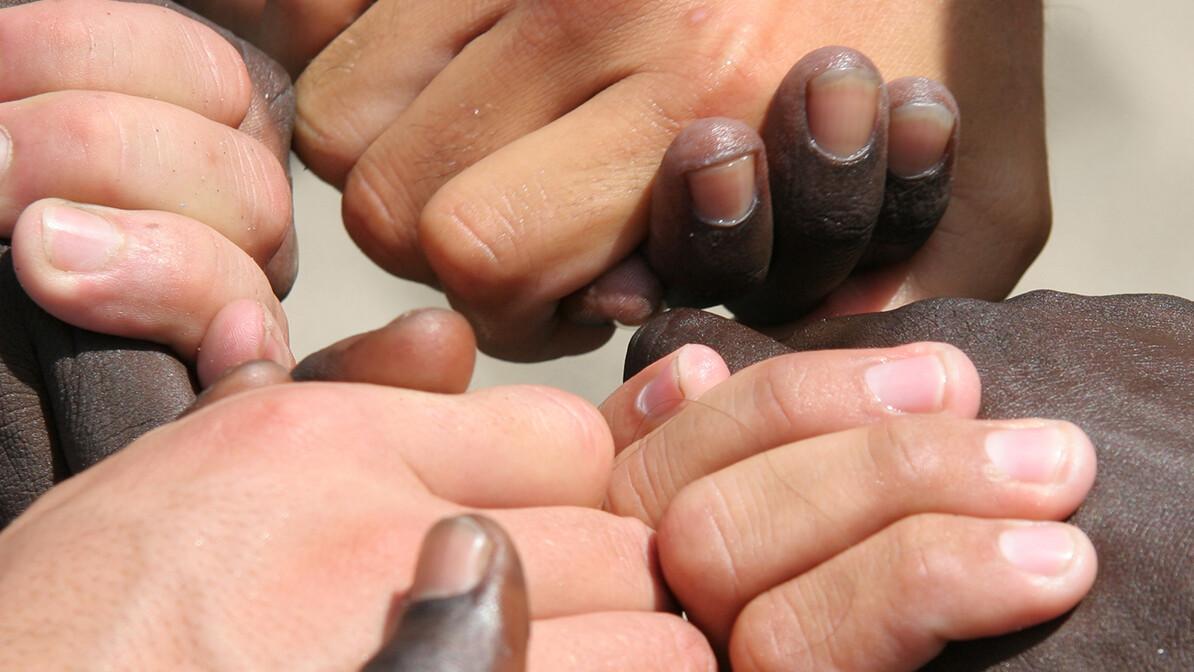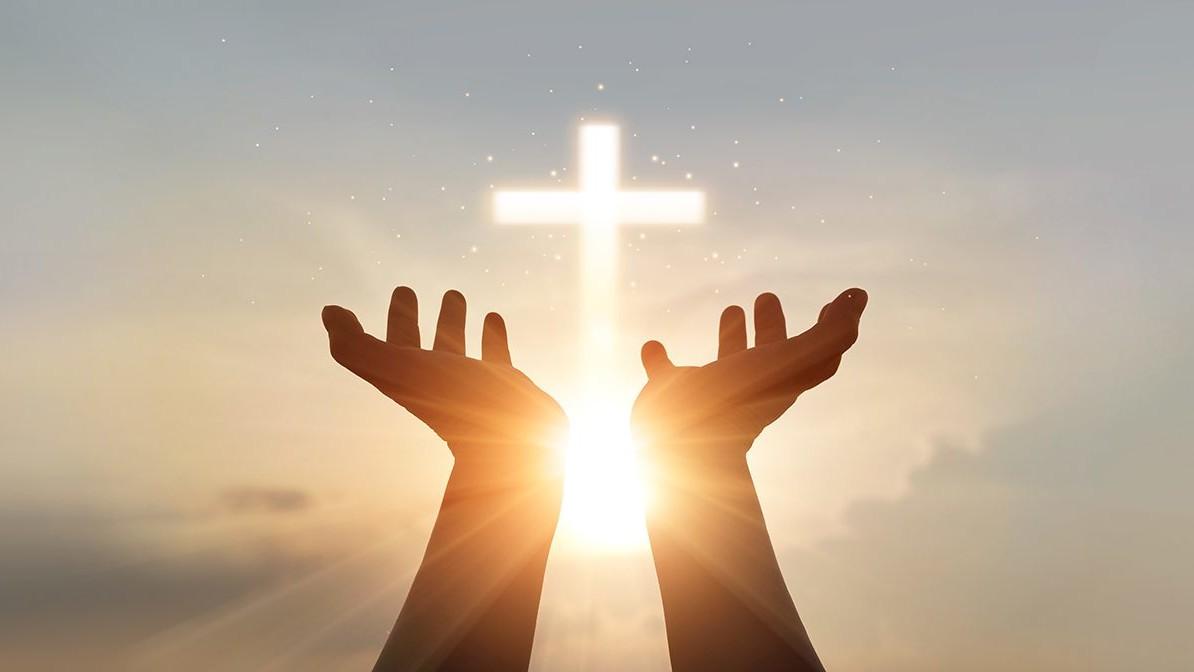- Home
- Spiritual Life
- Racial Reconciliation and the Tuskegee Legacy

Racial Reconciliation and the Tuskegee Legacy
Over the years, I have learned an important lesson in interpersonal communication. I discovered that in the midst of conflict the words “I’m sorry” are not enough to make up for my improper, and at times, awful behavior. Saying “I’m sorry” can sound to the offended party like, “I’m sorry I got caught.” I finally comprehended that what is necessary in an apology is an acceptance of responsibility – in other words, a confession of “I was wrong, please forgive me.”
What follows such an apology must be a period of time where proper behavior is demonstrated before trust can be rebuilt.
Forgiveness is given, but trust must be earned. In other words, actions speak louder than words.
America is once again experiencing upheaval related to racial divisions. Of course, much of this division stems from a system of race-based slavery that continued for more than 250 years. Distrust by African-Americans is also linked to the 100-year reign of terror between the end of the Civil War and the Civil Rights Act of 1964. This was a time of the ‘Jim Crow’ separate, but certainly not equal laws enacted throughout the former Confederacy as a means to keep Black people from rising in society.
Racial terrorism was enforced by groups like the infamous Ku Klux Klan, who used intimidation and violence to advance their view of how society should be organized. One of the tactics used by hate groups like the KKK was lynching. According to the Tuskegee Institute, 3,446 African-Americans were lynched between 1882 and 1968. During the height of these extrajudicial executions, from the 1890s through the 1920s, lynchings were often large mob actions, attended by hundreds or even thousands of people.
The unjust acts of vigilante mobs, along with corrupt politicians, judges, and police departments during the 100 years after the Civil War resulted in a lack of confidence in today’s law enforcement and in the constitutional guarantee of due process under the law.
The Longstanding Lie
A tragic and glaring example that many African-Americans point to of institutional racism is the infamous “Tuskegee experiment,” begun in 1932. During the 40 years of the so-called “study,” government doctors told a group of 399 African-American men that they were being treated for “bad blood.” In reality, the physicians withheld syphilis treatment from a group of African-American men for four decades without their knowledge. The doctors gave some of the men medicine to treat the disease, while others were given a placebo. The experiment was intended to study the effects of syphilis over a period of time. In 40 years, 128 men in the study died of the disease. Many went blind. Some went insane.
The Los Angeles Times quotes Dr. Vernal G. Cave, a member of a government-appointed panel that reviewed the study. In 1973, Cave testified that even after participants began to show grave illness and a death rate nearly double that of control subjects, the study continued. Cave explained that even after penicillin therapy was in widespread use, “whether due to bureaucratic inertia, or zeal to publish more papers, or a blocking out of ethical principles or – and we must consider this aspect – a sinister climate of racism, the study continued.”
The project came to a halt after Associated Press reporter, Jean Heller, blew the whistle in 1972.
The reason it took so long for the general public to be alerted was that the medical community did not seem to have a problem with the experiment. In fact, the research was published in more than one medical journal. The prevailing view was that there might be no other time in history where this kind of study could take place and so they wanted it to continue to gather as much data as possible.
In 1997, President Clinton, on behalf of the nation, apologized to the victims of the study. Despite this official acceptance of government responsibility, this study is only one of many incidents that highlight the pervading gulf of distrust between many Blacks and their fellow Americans.
No Rest Even in Death
For a few years in the 1990s, I served as an associate pastor in northwestern Pennsylvania. During that time, I had the privilege of co-officiating the funeral of an African-American man who attended our church. After the conclusion of the graveside service, the family remained and watched until the casket was lowered into the ground – a ritual not practiced in my experience.
Sensing my unfamiliarity, the African-American pastor who had preached the eulogy turned to me and explained why Black families remain at the grave for the burial. In years gone by, he said, undertakers had been in the habit of removing the body of a Black person from the coffin purchased by the family and burying the corpse separately. They would then resell the coffin to someone else. When this practice was discovered, families began the vigil at the graveside to ensure the dignity of their loved ones.
These are only a few examples of why distrust runs deep in this often-persecuted community.
A New Birth of Freedom
As a nation of immigrants, the United States became “the great melting pot.” Our fragile democracy was known as “the great experiment.” President Lincoln placed his focus on this “proposition” in his famous Gettysburg Address:
Four score and seven years ago our fathers brought forth on this continent, a new nation, conceived in Liberty, and dedicated to the proposition that all men are created equal.
Now we are engaged in a great civil war, testing whether that nation, or any nation so conceived and so dedicated, can long endure.
During the crucible of the Civil War, it was not entirely clear that the concept of “all men being created equal” would survive. We face the same question today as racial strife once again tears at the fabric of American society.
We must once again ask these eternal questions: “Are ALL men and women created equal?” “Are we ALL endowed by our Creator with unalienable rights – Life, Liberty, and the Pursuit of Happiness?”
As we grapple with these questions, we can once again look to Lincoln to find hope in the words he shared at Gettysburg:
…from these honored dead we take increased devotion to that cause for which they gave the last full measure of devotion—that we here highly resolve that these dead shall not have died in vain—that this nation, under God, shall have a new birth of freedom…
The “new birth of freedom” that Lincoln envisioned was meant to be a completion of the promise from the Declaration of Independence that “ALL are created equal.” That promise can only be fulfilled through the devotion of each person, at every level of society, making a commitment to equality on a daily basis.
Passing and enforcing laws are important – but it is not enough. Creating monuments and museums to remember those who stood for equality is important – but it is not enough. Teaching our children to see through the eyes of equality is important – but it is not enough.
Saying we are sorry for the sins of our fathers and mothers in racism is vitally important – but again, it is not enough unless our hearts and actions are changed to reflect the creed that ALL are truly created equal.
Our apologies must convey the message that not only are we sorry for what has taken place between the races – both in the past, and also still today – but that we resolve that racism is wrong and that we are truly sorry for years of abuse.
It took years of hate and violence to create the racial divide – it will take years of love and acts of goodwill, coupled with prayer, to change hearts and build trust. Then we may see the fulfillment of the words of Dr. Martin Luther King, Jr.:
When we allow freedom to ring, when we let it ring from every village and every hamlet, from every state and every city, we will be able to speed up that day when all of God’s children, black men and white men, Jews and Gentiles, Protestants and Catholics, will be able to join hands and sing in the words of the old Negro spiritual:
Free at last! Free at last!
Thank God Almighty, we are free at last!
Trending Now
Sign up today for your Inspiration Today Daily Newsletter
Supercharge your faith and ignite your spirit. Find hope in God’s word. Receive your Inspiration Today newsletter now!
Dr. Craig von Buseck
Dr. Craig von Buseck is an award-winning author, speaker, and Christian ministry leader known for his engaging storytelling and biblically grounded insights. His books, teachings, and inspirational messages encourage believers to trust God's guidance, walk in faith, and recognize His hand in everyday life.
Craig's writing blends historical research, spiritual wisdom, and practical application, making his work meaningful to readers across the Christian community.
Learn more about his books, teachings, and ministry at vonbuseck.com.
Related Articles
February 12, 2026
How to Get Unstuck from Your Winter Season
If your spiritual life feels cold, stagnant, or weighed down by the past, you may be living in a…
February 11, 2026
Improve Your Blurry Vision
What if the reason you’re stuck isn’t a lack of faith—but blurred vision? This article explores how…
February 10, 2026
God’s One-Eighty: A Testimony of Rejection, Truth, and New Life
She was told God didn’t love her—until the truth set her free. Maybe, like Serena, you’ve believed…
February 9, 2026
The Power of Worship
Worship isn’t just something we do—it’s a way we draw near to God and allow Him to draw near to us.…
Next Steps To Strengthen Your Walk
Inspiration Today Newsletter
Supercharge your faith and ignite your spirit. Find hope in God’s word. Receive your Inspiration Today newsletter now!
Christian Articles
Find articles to strengthen your walk and grow your faith. We have a wide range of topics and authors for you.
Submit A Prayer Request
We are here for you. Simply click on the button below to reach us by form, email or phone. Together we will lift our hearts and voices with you in prayer.





